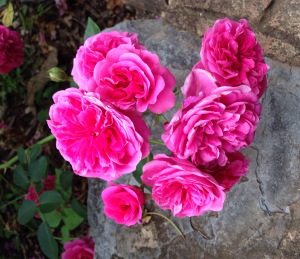Why wasn’t I taught so much in Madressah, stuff that I am only learning now? Not just nice-to-know but essential-to-know stuff, Waajib stuff.
There are so many things that I am learning now, and that makes me wonder about the gaps in my learning. Information is now shared at the speed of click, and that also makes me wary about the authenticity of sources. But there are some things that just seem to have been missing from my good ‘ol afternoon after school Madressah.
Apart from the missing pieces, there’s also the fact that history, for example, was taught in such a dry and boring way. The textbook (in my hazy memory) seems to have been filled with the names and dates of wars, with the numbers of soldiers on either side, and not the colourful detail that would make the stories truly memorable.
And it’s not as if we don’t have this detail – so much has been preserved from our history, and just a few exciting tidbits would have gone a long way to spark my interest in digging deeper.
Why were we not told about the red turbans adorned with ostrich feathers that were worn to strike fear in the hearts of the enemy? The heroism, the bravery, the poetry. I recently read about one of the Sahabia who charged into battle to defend herself by grabbing a tentpole and proclaiming something along the lines of “let me rearrange your brains”.
I understand that Apas have their hands full managing an unruly pack of kids, and trying to ensure that they learn the basics and instill the need to practice. But adding some spice to the work would really help to inspire the love of learning that would encourage us to learn more even after class.
Religious teachers may not have been taught how to teach in the traditional sense, and this may be what holds us back – but there were still some who I will never forget who had that natural knack for inspiring us to want to know more.
We have so many interesting stories, some inspire, some teach, some break your heart – I just wish that these were better conveyed to elicit more feeling in learners.
Maybe times have changed and Madressahs are doing a better job now, I have no idea because it’s been more than 10 years since I’ve seen what goes on in those classes. I hope it’s gotten a bit more juicy. Am I being too critical? Is it up to us to figure out what we don’t know and sort it out ourselves, do some self-study and find something that interests us and gets us to look further? Is it too much to expect everything to be taught adequately in such a short time, since there’s so much to learn?
Which reminds me…even though I’ve been out of Madressah for years, there seems to be a recent resurgence in adult Islamic education. People are signing up for online classes, or attending Tafseer and Arabic lessons, listening to Islamic podcasts and sharing updates about seminars and talks happening at the Masjids.
There also seems to be many more Hijabis (although maybe we just notice them more because there are also so many selfies) and a trend towards Islamic awareness.
This is really cool…but I wonder whether we are actually better off now. We may have more book-learning, actual knowledge about our religion, but our practices may not be up to scratch.
Those lovely oldies, the grand-folks and great-grand-folks, did not have as many books and classes and did not have access to all of the info that we have at our fingertips now. But the old ladies, with their triangle scarves draped lightly around their shoulders, grey hair sneaking through, had such great character.
They may not have been able to quote a Hadith about sincerity of intention, but they automatically lived their lives with sincerity and good morals. They had less theory but more practice. They may have known less, but they acted better.
What good is all of our knowledge when we find it so hard to practice? The world is so distracting, how do we just…be good?


